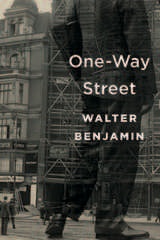
One-Way Street is a thoroughfare unlike anything else in literature—by turns exhilarating and bewildering, requiring mental agility and a special kind of urban literacy. Presented here in a new edition with expanded notes, this genre-defying meditation on the semiotics of late-1920s Weimar culture offers a fresh opportunity to encounter Walter Benjamin at his most virtuosic and experimental, writing in a vein that anticipates later masterpieces such as “On the Concept of History” and The Arcades Project.
Composed of sixty short prose pieces that vary wildly in style and theme, One-Way Street evokes a dense cityscape of shops, cafes, and apartments, alive with the hubbub of social interactions and papered over with public inscriptions of all kinds: advertisements, signs, posters, slogans. Benjamin avoids all semblance of linear narrative, enticing readers with a seemingly random sequence of aphorisms, reminiscences, jokes, off-the-cuff observations, dreamlike fantasias, serious philosophical inquiries, apparently unserious philosophical parodies, and trenchant political commentaries. Providing remarkable insight into the occluded meanings of everyday things, Benjamin time and again proves himself the unrivalled interpreter of what he called “the soul of the commodity.”
Despite the diversity of its individual sections, Benjamin’s text is far from formless. Drawing on the avant-garde aesthetics of Dada, Constructivism, and Surrealism, its unusual construction implies a practice of reading that cannot be reduced to simple formulas. Still refractory, still radical, One-Way Street is a work in perpetual progress.
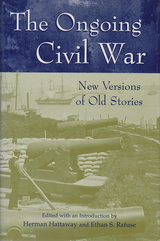
In 1997, John Stanchak, an editor at Cowles Enthusiast Media (now part of Primedia), realized his vision of “a publication that contained the best, most up-to-date scholarship on the [Civil] war, but was edited with the amateur historian in mind,” with the publication of Columbiad: A Quarterly Review of the War between the States. In the four years the journal was published, it strived to lessen the rift between the scholarly world of professional historians and the “popular” history with which the general reader is more familiar. Now, a selection of the essays that best represent the successful balance between “serious scholarship” and a narrative reading style preferred by the educated layman has been collected in The Ongoing Civil War.
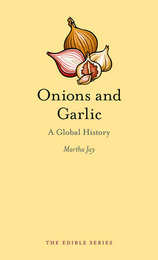
Going back to the earliest recipes from ancient Mesopotamia, Jay traces the spread of alliums along trade routes through Central Asia and into ancient Greece and Rome. Likewise she follows their spread in East Asia, where they have become indispensable, and of course into Europe and the Americas, where the onion—and its odor—gave rise to the name “Chicago” and the leek became the national symbol of Wales. Celebrated, denigrated, prescribed, and proscribed, onions, garlic, and their relatives can be found—as Jay lavishly demonstrates—in the histories of peasants and kings, in cuisine and art, in tales of colonization and those of resistance, and in medicinal cures and magical potions alike. Her book is a welcome celebration of some of the most important ingredients in the world.
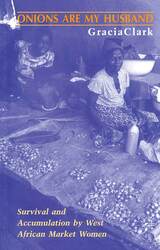
Probably the largest of its kind in West Africa, the Kumasi Central Market houses women whose positions vary from hawkers of meals and cheap manufactured goods to powerful wholesalers, who control the flow of important staples. Drawing on more than four years of field research, during which she worked alongside several influential market "Queens", Clark explains the economic, political, gender, and ethnic complexities involved in the operation of the marketplace and examines the resourcefulness of the market women in surviving the various hazards they routinely encounter, from coups d'etat to persistent sabotage of their positions from within.
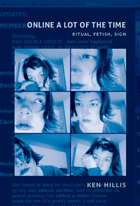
Hillis analyzes forms of ritual and fetishism made possible through second-generation virtual environments such as Second Life and the popular practice of using webcams to “lifecast” one’s life online twenty-four hours a day, seven days a week. Discussing how people create and identify with their electronic avatars, he shows how the customs of virtual-world chat reinforce modern consumer-based subjectivities, allowing individuals to both identify with and distance themselves from their characters. His consideration of web-cam cultures links the ritual of exposing one’s life online to a politics of visibility. Hillis argues that these new “rituals of transmission” are compelling because they provide a seemingly material trace of the actual person on the other side of the interface.
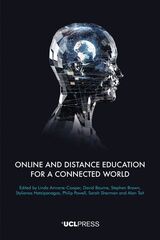
The COVID-19 pandemic led to the widespread adoption of distance and online learning in higher education, which has presented opportunities for large-scale, inclusive, flexible, and engaging learning. This volume, assembled by the University of London’s Centre for Online and Distance Education, addresses the practice and theory of online and distance education, building on knowledge and expertise developed in the university across nearly a century and a half. Contributors explore important principles and highlight successful practices in areas such as course design and pedagogy, online assessment, open education, inclusive practice, and enabling students' voices. Case studies illustrate prominent issues and approaches. Together, the chapters offer current and future leaders and practitioners a practical, productive, practice- and theory-informed account of the present and likely future state of online and distance higher education worldwide.

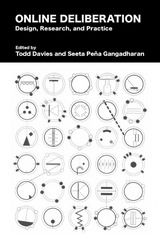

Jim Hall provides a comprehensive guide to the emerging field of cyberjournalism and examines the issues it raises. Looking at how interactive texts are both written and read, the book surveys the new technologies and conventions that online journalism has ushered in. The author uses case studies such as Monicagate and the war in Kosovo to illustrate both the opportunities and the limitations of cyberjournalism.
It is designed as a text to introduce how cyberjournalism works and how it can be used in innovative ways.

A new approach to training and evaluating world languages online instructors
The rapid growth in online world language programs in the United States coupled with the widespread implementation of virtual teaching in response to COVID-19 have pushed the field to reconceive instruction. Virtual learning creates unique challenges for instructors, who need to ensure that their students have adequate interaction with their peers, their professor, and native speakers of the language. Even with a growing demand for online language courses, there are few tools that evaluate the training and assessment of online language instructors.
In Online World Language Instruction Training and Assessment, authors Carmen King Ramírez, Barbara A. Lafford, and James E. Wermers fill that gap, providing a critical pedagogical approach to computer-assisted language learning (CALL) teacher education (CTE). By combining best CTE training and evaluation practices with assessment tools, the authors explain how teachers can integrate technology to build successful online programs. Their ecological, holistic approach addresses all facets of learning online—including pressing challenges of moving courses online, teacher training, developing core competencies and skills, instructions for assessment and self-evaluation, goal setting, and the normalization of critical CTE practices in an increasingly digital environment.
The authors propose new solutions to teacher training challenges, providing extensive rubrics and tools that can equitably assess online language instructor skills, the training they receive, the assessment process they undergo, and the instruments used for instructor assessment. A list of CALL and CTE resources (available on the Press’s website) further supports readers’ successful adaptation to an everchanging learning environment.
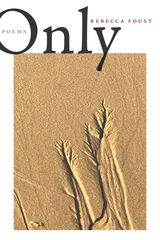
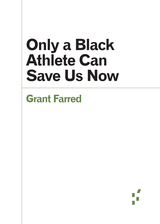
A call to arms exploring the protest movements of 2020 as they reverberated through the athletic world
Starting with the refusal of George Hill of the Milwaukee Bucks to participate in an August 2020 playoff game following the shooting of Jacob Blake by police in Kenosha, Wisconsin, Grant Farred shows how the Covid-restricted NBA “bubble” released an energy that spurred athletes into radical action. They disrupted athletic normalcy, and in their grief and rage against American racism they demonstrated the true progressivism lacking in even the most reformist-minded politicians and pundits. Farred goes on to trace the radicalism of black athletes in a number of sports, including the WNBA, women’s tennis, the NFL, and NASCAR, locating contemporary athletes in a lineage that runs through Muhammad Ali as well as Tommy Smith and John Carlos at the 1968 Olympics.
Only a Black Athlete Can Save Us Now uses sport as a point of departure to argue that the dystopic crisis of our current moment offers a singular opportunity to reimagine how we live in the world.
Forerunners: Ideas First is a thought-in-process series of breakthrough digital publications. Written between fresh ideas and finished books, Forerunners draws on scholarly work initiated in notable blogs, social media, conference plenaries, journal articles, and the synergy of academic exchange. This is gray literature publishing: where intense thinking, change, and speculation take place in scholarship.
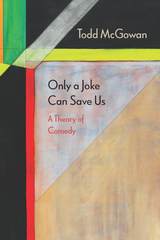
Only a Joke Can Save Us presents an innovative and comprehensive theory of comedy. Using a wealth of examples from high and popular culture and with careful attention to the treatment of humor in philosophy, Todd McGowan locates the universal source of comedy in the interplay of the opposing concepts lack and excess.
After reviewing the treatment of comedy in the work of philosophers as varied as Aristotle, G. W. F. Hegel, Sigmund Freud, Henri Bergson, and Alenka Zupancic, McGowan, working in a psychoanalytic framework, demonstrates that comedy results from the deployment of lack and excess, whether in contrast, juxtaposition, or interplay.
Illustrating the power and flexibility of this framework with analyses of films ranging from Buster Keaton and Marx Brothers classics to Dr. Strangelove and Groundhog Day, McGowan shows how humor can reveal gaps in being and gaps in social order. Scholarly yet lively and readable, Only a Joke Can Save Us is a groundbreaking examination of the enigmatic yet endlessly fascinating experience of humor and comedy.
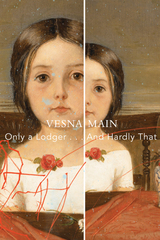
In “The Eye/I,” we meet someone called She, who obsessively tells the story of her childhood and adolescence to an unnamed narrator. “The Acrobat” is a sequence of prose poems, written in the style of magic realism, which tell the story of Maria and her life-changing adolescent encounter with a flying circus performer. The female protagonist of the first section narrates “The Dead,” describing the secret life of a grandfather she never truly knew and his unusual habit of sending family members anonymous parcels of carefully chosen books. In “The Poet,” she examines four family photographs in order to piece together a story of her other grandfather, the husband of Maria. The final section, “The Suitor,” is a first-person narrative told by Mr. Gustav Otto Wagner, an older man who hoped to marry Maria but was ultimately turned down.
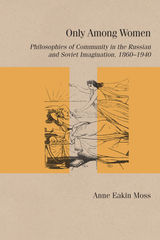
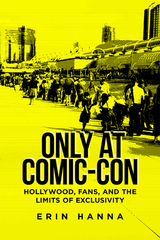
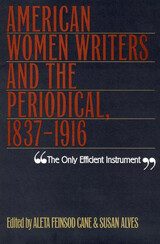
Many farsighted women writers in nineteenth-century America made thoughtful and sustained use of newspapers and magazines to effect social and political change. “The Only Efficient Instrument”: American Women Writers and the Periodical, 1837-1916 examines these pioneering efforts and demonstrates that American women had a vital presence in the political and intellectual communities of their day.
Women writers and editors of diverse social backgrounds and ethnicities realized very early that the periodical was a powerful tool for education and social reform—it was the only efficient instrument to make themselves and their ideas better known. This collection of critical essays explores American women's engagement with the periodical press and shows their threefold use of the periodical: for social and political advocacy; for the critique of gender roles and social expectations; and for refashioning the periodical as a more inclusive genre that both articulated and obscured such distinctions as class, race, and gender.
Including essays on familiar figures such as Margaret Fuller, Harriet Beecher Stowe, Kate Chopin, and Charlotte Perkins Gilman, “The Only Efficient Instrument” also focuses on writings from lesser-known authors, including Native American Zitkala-Sä, Mexican American María Cristina Mena, African American Frances Ellen Watkins Harper, and the Lowell factory workers. Covering nearly eighty years of publishing history, from the press censure of the outspoken Angelina Grimké in 1837 to the last issue of Gilman's Forerunner in 1916, this fascinating collection breaks new ground in the study of the women's rights movement in America.
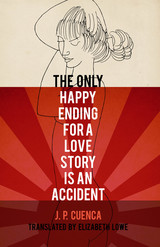
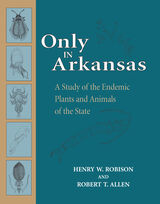
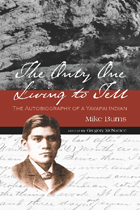
Mike Burns—born Hoomothya—was around eight years old in 1872 when the US military murdered his family and as many as seventy-six other Yavapai men, women, and children in the Skeleton Cave Massacre in Arizona. One of only a few young survivors, he was adopted by an army captain and ended up serving as a scout in the US army and adventuring in the West. Before his death in 1934, Burns wrote about the massacre, his time fighting in the Indian Wars during the 1880s, and life among the Kwevkepaya and Tolkepaya Yavapai. His precarious position between the white and Native worlds gives his account a distinctive narrative voice.
Because Burns was unable to find a publisher during his lifetime, these firsthand accounts of history from a Native perspective remained unseen through much of the twentieth century, archived at the Sharlot Hall Museum in Prescott. Now Gregory McNamee has brought Burns's text to life, making this extraordinary tale an accessible and compelling read. Generations after his death, Mike Burns finally gets a chance to tell his story.
This autobiography offers a missing piece of Arizona history—as one of the only Native American accounts of the Skeleton Cave Massacre—and contributes to a growing body of history from a Native perspective. It will be an indispensable tool for scholars and general readers interested in the West—specifically Arizona history, the Apache wars, and Yavapai and Apache history and lifeways.
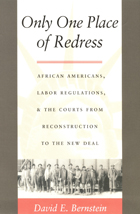
A pioneer in applying the insights of public choice theory to legal history, Bernstein contends that the much-maligned jurisprudence of the Lochner era—with its emphasis on freedom of contract and private market ordering—actually discouraged discrimination and assisted groups with little political clout. To support this thesis he examines the motivation behind and practical impact of laws restricting interstate labor recruitment, occupational licensing laws, railroad labor laws, minimum wage statutes, the Davis-Bacon Act, and New Deal collective bargaining. He concludes that the ultimate failure of Lochnerism—and the triumph of the regulatory state—not only strengthened racially exclusive labor unions but contributed to a massive loss of employment opportunities for African Americans, the effects of which continue to this day.
Scholars and students interested in race relations, labor law, and legal
or constitutional history will be fascinated by Bernstein’s daring—and controversial—argument.
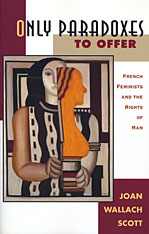
When feminists argued for political rights in the context of liberal democracy they faced an impossible choice. On the one hand, they insisted that the differences between men and women were irrelevant for citizenship. On the other hand, by the fact that they acted on behalf of women, they introduced the very idea of difference they sought to eliminate. This paradox--the need both to accept and to refuse sexual difference in politics--was the constitutive condition of the long struggle by women to gain the right of citizenship. In this new book, remarkable in both its findings and its methodology, award-winning historian Joan Wallach Scott reads feminist history in terms of this paradox of sexual difference.
Focusing on four French feminist activists--Olympe de Gouges, who wrote the Declaration of the Rights of Woman and Citizen during the French Revolution; Jeanne Deroin, a utopian socialist and candidate for legislative office in 1848; Hubertine Auclert, the suffragist of the Third Republic; and Madeleine Pelletier, a psychiatrist in the early twentieth century who argued that women must "virilize" themselves in order to gain equality--Scott charts the repetitions and variations in feminist history. Again and again, feminists tried to prove they were individuals, according to the standards of individuality of their day. Again and again, they confronted the assumption that individuals were men. But when sexual difference was taken to be a fundamental difference, when only men were regarded as individuals and thus as citizens, how could women also be citizens? The imaginative and courageous answers feminists offered to these questions are the subject of this engaging book.
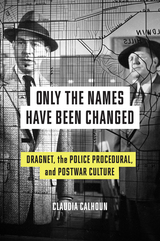
2023 Peter C. Rollins Book Award, Northeast Texas Popular Culture and American Culture Associations (NEPCA)
In the postwar era, the police procedural series Dragnet informed Americans on the workings of the criminal justice system and instructed them in their responsibilities as citizens.
Among shifting politics, tastes, and technology in television history, one genre has been remarkably persistent: the cop show. Claudia Calhoun returns to Dragnet, the pioneering police procedural and an early transmedia franchise, appearing on radio in 1949, on TV and in film in the 1950s, and in later revivals. More than a popular entertainment, Dragnet was a signifier of America’s postwar confidence in government institutions—and a publicity vehicle for the Los Angeles Police Department.
Only the Names Have Been Changed shows how Dragnet’s “realistic” storytelling resonated across postwar culture. Calhoun traces Dragnet’s “semi-documentary” predecessors, and shows how Jack Webb, Dragnet’s creator, worked directly with the LAPD as he produced a series that would likewise inspire public trust by presenting day-to-day procedural justice, rather than shootouts and wild capers. Yet this realism also set aside the seething racial tensions of Los Angeles as it was. Dragnet emerges as a foundational text, one that taught audiences to see police as everyday heroes not only on TV but also in daily life, a lesson that has come under scrutiny as Americans increasingly seek to redefine the relationship between policing and public safety.
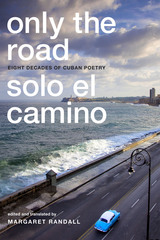
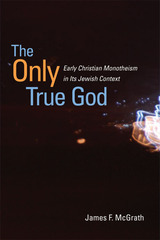
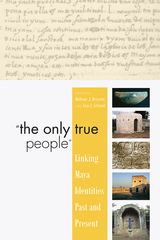
"The Only True People" is a timely and rigorous examination of ethnicity among the ancient and modern Maya, focusing on ethnogenesis and exploring the complexities of Maya identity—how it developed, where and when it emerged, and why it continues to change over time. In the volume, a multidisciplinary group of well-known scholars including archaeologists, linguists, ethnographers, ethnohistorians, and epigraphers investigate ethnicity and other forms of group identity at a number of Maya sites and places, from the northern reaches of the Yucatan to the Southern Periphery, and across different time periods, from the Classic period to the modern day.
Each contribution challenges the notion of ethnically homogenous "Maya peoples" for their region and chronology and explores how their work contributes to the definition of "ethnicity" for ancient Maya society. Contributors confront some of the most difficult theoretical debates concerning identity in the literature today: how different ethnic groups define themselves in relation to others; under what circumstances ethnicity is marked by overt expressions of group membership and when it is hidden from view; and the processes that transform ethnic identities and their expressions.
By addressing the social constructs and conditions behind Maya ethnicity, both past and present, "The Only True People" contributes to the understanding of ethnicity as a complex set of relationships among people who lived in real and imagined communities, as well as among people separated by social boundaries. The volume will be a key resource for Mayanists and will be of interest to students and scholars of ethnography, anthropology, and cultural studies as well.
Contributors: McCale Ashenbrener, Ellen E. Bell, Marcello A. Canuto, Juan Castillo Cocom, David A. Freidel, Wolfgang Gabbert, Stanley P. Guente, Jonathan Hill, Charles Andrew Hofling, Martha J. Macri, Damien B. Marken, Matthew Restall, Timoteo Rodriguez, Mathew C. Samson, Edward Schortman, Rebecca Storey


Digging into her past, Suzette uncovered a deeply buried truth: she’d been in love with her best friend—a woman—for nearly two decades—and still was. Leaning into these “unspeakable” feelings would put Suzette’s identity, relationships, and life of privilege at risk—but taking this leap might be her only chance to feel fully alive. As Suzette opened herself up to new possibilities, an unexpected visit to a new city helped her discover who she was meant to be.
Introspective, bittersweet, and empowering, The Only Way Through Is Out is both a coming-out and coming-of-age story, as well as a call to action for every human who is longing to live authentically but is afraid of the cost.
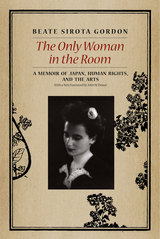
Sirota was born in Vienna, but in 1929 her family moved to Japan so that her father, a noted pianist, could teach, and she grew up speaking German, English, and Japanese. Russian, French, Italian, Latin, and Hebrew followed, and at fifteen Sirota was sent to complete her education at Mills College in California. The formal declaration of World War II cut Gordon off from her parents, and she supported herself by working for a CBS listening post in San Francisco that would eventually become part of the FCC. Translating was one of Sirota’s many talents, and when the war ended, she was sent to Japan as a language expert to help the American occupation forces. When General MacArthur suddenly created a team that included Sirota to draft the new Japanese Constitution, he gave them just eight days to accomplish the task. Colonel Roest said to Beate Sirota, “You’re a woman, why don’t you write the women’s rights section?”; and she seized the opportunity to write into law guarantees of equality unparalleled in the US Constitution to this day.
But this was only one episode in an extraordinary life, and when Gordon died in December 2012, words of grief and praise poured from artists, humanitarians, and thinkers the world over. Illustrated with forty-seven photographs, The Only Woman in the Room captures two cultures at a critical moment in history and recounts, after a fifty-year silence, a life lived with purpose and courage. This edition contains a new afterword by Nicole A. Gordon and an elegy by Geoffrey Paul Gordon.
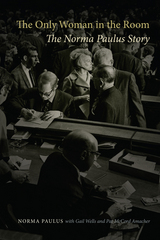
Paulus came from a family of Roosevelt Democrats, but when a friend campaigned for a Republican seat in the state legislature, she switched parties. As she put it, “The Republicans were in politics for all the right reasons.” Amid the nationwide political upheavals of the late 1960s, Oregon’s Republicans, led by popular governor Tom McCall, seemed to be her kind of people—principled, pragmatic, and committed to education, the environment, and equality for all citizens under the law.
Paulus’s appointment by Governor McCall to the Marion-Polk Boundary Commission in 1969, a precursor to Oregon’s urban growth boundaries, helped launched her on a long and distinguished career of public service. She ran successfully for the Oregon House of Representatives in 1970, the first women to do so in the district. After three terms in the House, where she championed environmental causes, women’s rights and government transparency, she was elected Oregon’s Secretary of State in 1976—the first woman to hold that office and be elected to a statewide office in Oregon. She was the Republican candidate for governor in 1986, served a stint on the Northwest Power and Conservation Council, went on to become Oregon’s superintendent of public instruction, and headed the Oregon Historical Society.
During her years of public service, spanning the 1970s through the early 2000s, Norma Paulus occupied a distinctive niche in Oregon’s progressive political ecosystem. Her vivid personality and strong convictions endeared her to a broad swath of citizens. Beautiful and opinionated, charming and forceful, Paulus was widely covered in statewide and national newspapers and television during her eventful, sometimes controversial career. Now, The Only Woman in the Room sums up her life and work in a lively, anecdotal history that will appeal to historians, political scientists, newshounds, and ordinary citizens alike.
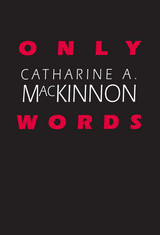
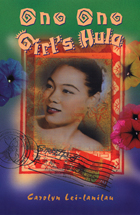
Both playful and serious, this audacious riff on ethnic and sexual identity by Hawaiian-Hakka Chinese-American writer Carolyn Lei-lanilau revolves around the persona she calls “Ono Ono Girl,” an icon that interweaves and transcends Lucille Ball, Little Lulu, Tina Turner, and Spottie Dottie. Challenging assumptions about genre and gender, and acting out the notion that language is a function of the body, these essays are transforming soundbytes of Ono Ono Girl inventing herself.
“Just when you thought American literature was canonized and commodified beyond saving, Carolyn Lei-lanilau’s intertextual, irreverent work, Ono Ono Girl’s Hula, brings language and philosophy back to the table. Her book is a miracle delivery: a rebirth of poetry, Third World Spam, and love wrapped around the hybrid vigor of Hawaiian, Hakka, French, Latin, and English. Soulful, powerful, and wise.”—Russell Leong, editor of Amerasia Journal
“A book enjoyable equally for its fun as for its profundity, Carolyn Lei-lanilau’s Ono Ono Girl’s Hula is irresistible must reading for feminists, anthropologists, contemporary culture buffs, and anyone who wants a refreshing take on some of our more vexing current disputes. Down-to-earth and poetic, serious and hilarious at once, her unconventional voice invites the reader to understand the paradoxes of identity—sexual and ethnic—in new ways.”—Robin Lakoff, author of Talking Power

In the mid-1920s, the Iranian state legislated a wide-ranging reform of the citizenry’s naming practices. Honorary titles and honorifics were abolished, family names were made obligatory, and an office for registering names and citizens’ life events (birth, marriage, divorce, and death) was established. The main motivation for this onomastic reform was conscription, which necessitated knowledge of young men’s ages, identities, and whereabouts. The introduction of conscription was itself part of the state-building efforts that followed the weakening of the central government induced by the First World War.
In Onomastic Reforms, H. E. Chehabi explains the traditional naming practices of Iranians before the reform, describes the public debates surrounding their obsolescence, traces the legislative measures and decrees that constituted the reform, and explores the ways Iranians chose or invented surnames for themselves.
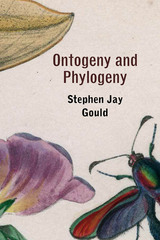
“Ontogeny recapitulates phylogeny” was Haeckel’s answer—the wrong one—to the most vexing question of nineteenth-century biology: what is the relationship between individual development (ontogeny) and the evolution of species and lineages (phylogeny)? In this, the first major book on the subject in fifty years, Stephen Jay Gould documents the history of the idea of recapitulation from its first appearance among the pre-Socratics to its fall in the early twentieth century.
Mr. Gould explores recapitulation as an idea that intrigued politicians and theologians as well as scientists. He shows that Haeckel’s hypothesis—that human fetuses with gill slits are, literally, tiny fish, exact replicas of their water-breathing ancestors—had an influence that extended beyond biology into education, criminology, psychoanalysis (Freud and Jung were devout recapitulationists), and racism. The theory of recapitulation, Gould argues, finally collapsed not from the weight of contrary data, but because the rise of Mendelian genetics rendered it untenable.
Turning to modern concepts, Gould demonstrates that, even though the whole subject of parallels between ontogeny and phylogeny fell into disrepute, it is still one of the great themes of evolutionary biology. Heterochrony—changes in developmental timing, producing parallels between ontogeny and phylogeny—is shown to be crucial to an understanding of gene regulation, the key to any rapprochement between molecular and evolutionary biology. Gould argues that the primary evolutionary value of heterochrony may lie in immediate ecological advantages for slow or rapid maturation, rather than in long-term changes of form, as all previous theories proclaimed.
Neoteny—the opposite of recapitulation—is shown to be the most important determinant of human evolution. We have evolved by retaining the juvenile characters of our ancestors and have achieved both behavioral flexibility and our characteristic morphology thereby (large brains by prolonged retention of rapid fetal growth rates, for example).
Gould concludes that “there may be nothing new under the sun, but permutation of the old within complex systems can do wonders. As biologists, we deal directly with the kind of material complexity that confers an unbounded potential upon simple, continuous changes in underlying processes. This is the chief joy of our science.”
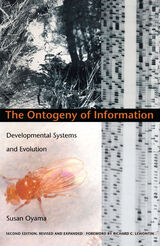
Information, says Oyama, is thought to reside in molecules, cells, tissues, and the environment. When something wondrous occurs in the world, we tend to question whether the information guiding the transformation was pre-encoded in the organism or installed through experience or instruction. Oyama looks beyond this either-or question to focus on the history of such developments. She shows that what developmental “information” does depends on what is already in place and what alternatives are available. She terms this process “constructive interactionism,” whereby each combination of genes and environmental influences simultaneously interacts to produce a unique result. Ontogeny, then, is the result of dynamic and complex interactions in multileveled developmental systems.
The Ontogeny of Information challenges specialists in the fields of developmental biology, philosophy of biology, psychology, and sociology, and even nonspecialists, to reexamine the existing nature-nurture dichotomy as it relates to the history and formation of organisms.

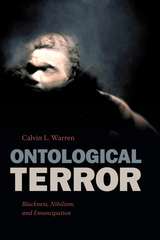
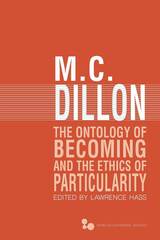
M. C. Dillon (1938–2005) was widely regarded as a world-leading Merleau-Ponty scholar. His book Merleau-Ponty’s Ontology (1988) is recognized as a classic text that revolutionized the philosophical conversation about the great French phenomenologist. Dillon followed that book with two others: Semiological Reductionism, a critique of early-1990s linguistic reductionism, and Beyond Romance, a richly developed theory of love. At the time of his death, Dillon had nearly completed two further books to which he was passionately committed. The first one offers a highly original interpretation of Nietzsche’s ontology of becoming. The second offers a detailed ethical theory based on Merleau-Ponty’s account of carnal intersubjectivity. The Ontology of Becoming and the Ethics of Particularity collects these two manuscripts written by a distinguished philosopher at the peak of his powers—manuscripts that, taken together, offer a distinctive and powerful view of human life and ethical relations.
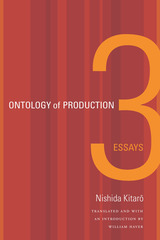
Agreeing with Marx that ontology is production and production is ontology, Nishida in these three essays—"Expressive Activity" (1925), "The Standpoint of Active Intuition" (1935), and "Human Being" (1938)—addresses sense and reason, language and thought, intuition and appropriation, ultimately arguing that in this concept of production, ideality and materiality are neither mutually exclusive nor oppositional but, rather, coimmanent. Nishida's forceful articulation of the radical nature of Marx's theory of production is, Haver contends, particularly timely in today's speculation-driven global economy. Nishida's reading of Marx, which points to the inseparability of immaterial intellectual labor and material manual labor, provokes a reconsideration of Marxism's utility for making sense of—and resisting—the logic of contemporary capitalism.

Ingarden elaborates upon the conception of concretization which he present in The Literary Work of Art and applies it to music and visual art. He also employs the concept of aspect to clarify the ontic structure of these art works and the distinction between the concretization of the work and the work itself. The distinction between the work’s concretization — effectuated in the mental experiences of the listener or viewer — and the work itself serves to help Ingarden confirm and account for the work’s intersubjective identity.
The problem of aesthetic value, Ingarden maintains, can be fruitfully treated only after the ontic structure of art work has been clarified. His primary concern in Ontology of the Work of Art is to ascertain and describe that structure and the mode of existence of works of art. In addition, he offers several discussions of aesthetic value, showing in the m the connections between questions of aesthetic value and the structure of the work of art.
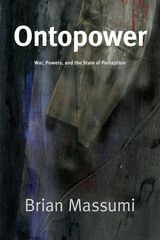
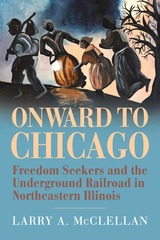
Uncovering stories of the freedom network in northeastern Illinois
Decades before the Civil War, Illinois’s status as a free state beckoned enslaved people, particularly those in Kentucky and Missouri, to cross porous river borders and travel toward new lives. While traditional histories of the Underground Railroad in Illinois start in 1839, and focus largely on the romanticized tales of white men, Larry A. McClellan reframes the story, not only introducing readers to earlier freedom seekers, but also illustrating that those who bravely aided them were Black and white, men and women. McClellan features dozens of individuals who made dangerous journeys to reach freedom as well as residents in Chicago and across northeastern Illinois who made a deliberate choice to break the law to help.
Onward to Chicago charts the evolution of the northeastern Illinois freedom network and shows how, despite its small Black community, Chicago emerged as a point of refuge. The 1848 completion of the I & M Canal and later the Chicago to Detroit train system created more opportunities for Black men, women, and children to escape slavery. From eluding authorities to confronting kidnapping bands working out of St. Louis and southern Illinois, these stories of valor are inherently personal. Through deep research into local sources, McClellan presents the engrossing, entwined journeys of freedom seekers and the activists in Chicagoland who supported them.
McClellan includes specific freedom seeker journey stories and introduces Black and white activists who provided aid in a range of communities along particular routes. This narrative highlights how significant biracial collaboration led to friendships as Black and white abolitionists worked together to provide support for freedom seekers traveling through the area and ultimately to combat slavery in the United States.
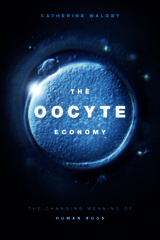
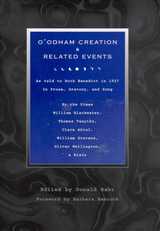
The origin stories of the O’odham (Pima) Indians of Arizona are renowned for their beauty and complexity but have been collected in only a handful of books. This volume—the third full O’odham telling of ancientness to appear in print—brings together dozens of stories collected in 1927 by anthropologist Ruth Benedict during her only visit to the Pimas. Never before published, they helped inspire Benedict to write her groundbreaking book Patterns of Culture.
The Pimas represented a way of life that Benedict at first called “Dionysian” after hearing the stories, narratives, songs, and oratory collected from various tellers during her three-month stay. The oral literature concerns the creation of the world and its transformations over time, the creation of the O’odham people, and other cultural traditions. Featuring a pair of man-gods, a female monster born of woman, and a conquest of Pimas by Pimas, they serve to mark the O’odham as a people distinct from their neighbors near and far.
The present volume contains more stories than any other source of Pima tales, plus more of the songs and orations that accompanied a telling. It includes “The Rafter,” a host of ancillary stories, numerous Coyote tales, and additional speeches tied to the narratives of ancientness. One long story, “The Feud,” found only in this collection, shows similarities to the Maya Popol Vuh.
Donald Bahr, a preeminent authority on the O’odham, has not only clarified the text but has also written an introduction that provides the background to the collection and analyzes Benedict’s probable reasons for never having published it. He has also included a previously unpublished text by Benedict, “Figures of Speech among the Pima.” O’odham Creation and Related Events represents an invaluable sourcebook of a people’s oral literature as well as a tribute to a singular scholar’s dedication and vision.
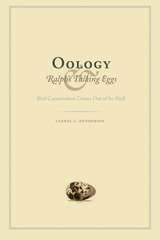
Before modern binoculars and cameras made it possible to observe birds closely in the wild, many people collected eggs as a way of learning about birds. Serious collectors called their avocation "oology" and kept meticulous records for each set of eggs: the bird's name, the species reference number, the quantity of eggs in the clutch, the date and location where the eggs were collected, and the collector's name. These documented egg collections, which typically date from the nineteenth and early twentieth centuries, now provide an important baseline from which to measure changes in the numbers, distribution, and nesting patterns of many species of birds.
In Oology and Ralph's Talking Eggs, Carrol L. Henderson uses the vast egg collection of Ralph Handsaker, an Iowa farmer, as the starting point for a fascinating account of oology and its role in the origins of modern birdwatching, scientific ornithology, and bird conservation in North America. Henderson describes Handsaker's and other oologists' collecting activities, which included not only gathering bird eggs in the wild but also trading and purchasing eggs from collectors around the world. Henderson then spotlights sixty of the nearly five hundred bird species represented in the Handsaker collection, using them to tell the story of how birds such as the Snowy Egret, Greater Prairie Chicken, Atlantic Puffin, and Wood Duck have fared over the past hundred years or so since their eggs were gathered. Photos of the eggs and historical drawings and photos of the birds illustrate each species account. Henderson also links these bird histories to major milestones in bird conservation and bird protection laws in North America from 1875 to the present.
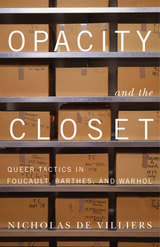
Opacity and the Closet interrogates the viability of the metaphor of “the closet” when applied to three important queer figures in postwar American and French culture: the philosopher Michel Foucault, the literary critic Roland Barthes, and the pop artist Andy Warhol. Nicholas de Villiers proposes a new approach to these cultural icons that accounts for the queerness of their works and public personas.
Rather than reading their self-presentations as “closeted,” de Villiers suggests that they invent and deploy productive strategies of “opacity” that resist the closet and the confessional discourse associated with it. Deconstructing binaries linked with the closet that have continued to influence both gay and straight receptions of these intellectual and pop celebrities, de Villiers illuminates the philosophical implications of this displacement for queer theory and introduces new ways to think about the space they make for queerness.
Using the works of Foucault, Barthes, and Warhol to engage each other while exploring their shared historical context, de Villiers also shows their queer appropriations of the interview, the autobiography, the diary, and the documentary—forms typically linked to truth telling and authenticity.
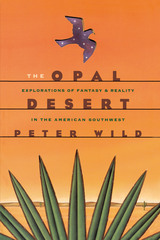
The opalescent deserts of the American Southwest have become romantic icons in the public imagination through the words of writers, the images of artists and photographers, and the visual storytelling of filmmakers. In this spirited, personal, beautifully written book, Peter Wild explores the lives and works of sixteen writers whose words have shaped our visions of the opal desert.
Wild begins with Cabeza de Vaca, whose Relación of his desert wanderings sent treasure-hungry Spaniards searching for cities of gold. He goes on to discuss the works of both widely read and lesser-known nineteenth- and twentieth-century authors, including such luminaries as Mary Austin, Joseph Wood Krutch, Edward Abbey, Ann Zwinger, and Charles Bowden. He links all the writers as explorers of one kind or another, searching for tangible or intangible treasures, some finding and some losing their dreams in the opal desert.
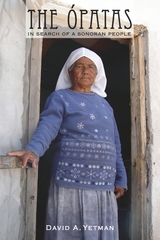
David Yetman, a leading ethnobotanist who has traveled extensively in Sonora, consulted more than two hundred archival sources to answer this question. The result is an accessible ethnohistory of the Ópatas, one that embraces historical complexity with an eye toward Opatan strategies of resistance and assimilation. Yetman’s account takes us through the Opatans’ initial encounters with the conquistadors, their resettlement in Jesuit missions, clashes with Apaches, their recruitment as miners, and several failed rebellions, and ultimately arrives at an explanation for their “disappearance.”
Yetman’s account is bolstered by conversations with present-day residents of the Opatería and includes a valuable appendix on the languages of the Opatería by linguistic anthropologist David Shaul. One of the few studies devoted exclusively to this indigenous group, The Ópatas: In Search of a Sonoran People marks a significant contribution to the literature on the history of the greater Southwest.

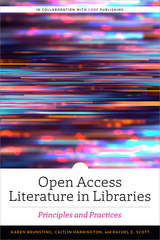
- the origins and growth of OA, how to define it, and some of the ways in which librarians have made connections to OA;
- where OA diverges from the historic role of library collection development policies and ways to bring OA into alignment with an institution's collection development principles and practices;
- real-world examples of how libraries have supported or integrated OA into their collections, including strategies for selecting and activating OA titles and collections for inclusion, offering open educational resources (OER) to students, samples of collection management workflows, and ideas for aligning collections with institutional repositories or other Green OA initiatives;
- guidance on financially supporting OA content, initiatives, and platforms;
- how OA publishing does and does not harmonize with diversity, equity, and inclusion initiatives; and
- tips for using ongoing assessment and evaluation to continuously support the library’s path to an open future.
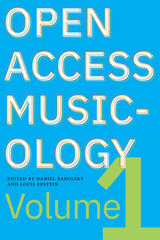
In the fall of 2015, a collection of faculty at liberal arts colleges began a conversation about the challenges we faced as instructors: Why were there so few course materials accessible to undergraduates and lay readers that reflected current scholarly debate? How can we convey the relevance of studying music history to current and future generations of students? And how might we represent and reflect the myriad, often conflicting perspectives, positions, and identities that make up both music’s history and the writers of history?
Here we offer one response to those questions. Open Access Musicology is a collection of essays, written in an accessible style and with a focus on modes of inquiry rather than content coverage. Our authors draw from their experience as scholars but also as teachers. They have been asked to describe why they became musicologists in the first place and how their individual paths led to the topics they explore and the questions they pose. Like most scholarly literature, the essays have all been reviewed by experts in the field. Unlike all scholarly literature, the essays have also been reviewed by students at a variety of institutions for clarity and relevance.
These essays are intended for undergraduates, graduate students, and interested readers without any particular expertise. They can be incorporated into courses on a range of topics as standalone readings or used to supplement textbooks. The topics introduce and explore a variety of subjects, practices, and methods but, above all, seek to stimulate classroom discussion on music history’s relevance to performers, listeners, and citizens.
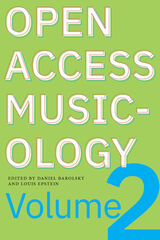
In service of our student- and access-centered mission, Open Access Musicology is a free collection of essays, written in an engaging style and with a focus on modes of inquiry rather than coverage of content. Our authors draw from their experience as scholars but also as teachers. They not only make arguments, but also describe why they became musicologists in the first place and explain how their individual paths led to the topics they explore. Like most scholarly literature, the essays have all been reviewed by experts in the field. Unlike most scholarly literature, the essays have also been reviewed by students at a variety of institutions for clarity and relevance.
These essays are intended for undergraduates, graduate students, and interested readers without any particular expertise. They can be incorporated into courses on a range of topics as standalone readings, used to supplement textbooks, or read with an eye to new scholarly insights. The topics introduce and explore a variety of subjects, practices, and methods but, above all, seek to stimulate classroom discussion on music history’s relevance to performers, listeners, and citizens. Open Access Musicology will never pretend to present complete histories, cover all elements of a subject, or satisfy the agenda of every reader. Rather, each essay provides an opening to further contemplation and study. We invite readers to follow the thematic links between essays, pursue notes or other online resources provided by authors, or simply repurpose the essay’s questions into new and exciting forms of research and creativity.
Volume 2 of OAM expands the disciplinary, topical, and geographical ranges of our endeavor, with essays that rely on ethnographic and music theoretical methods as well as historical ones. The essays in this volume touch on music from Europe, South America, and Asia, spanning the 16th century to the present. Throughout, the contributing authors situate music in political, religious, racial, economic, and other cultural and disciplinary contexts. This volume therefore expands what scholars generally mean when they refer to “musicology” and “music,” always with an eye toward relevance and accessibility.


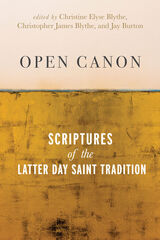
Chapters cover both well-studied and lesser-studied works, introducing readers to scripture dictated by nineteenth- and twentieth-century revelators such as James Strang, Lucy Mack Smith, Sidney Rigdon, Harry Edgar Baker, and Charles B. Thompson, among others. Contributors detail how various Latter Day Saint denominations responded to scriptures introduced during the ministry of Joseph Smith and how churches have employed the Book of Mormon, the Doctrine and Covenants, and the Lectures of Faith over time. Bringing together studies from across denominational boundaries, this book considers what we can learn about Latter Day Saint resistance to the closed canon and the nature of a new American scriptural tradition.
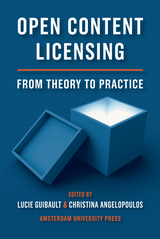
Although open content licenses only account for a fraction of all copyright licenses currently enforced in the world, their introduction has had profound effects on the use and dissemination of information. This book explores the theoretical underpinnings of these licenses and offers insight on the practical advantages and inconveniences of their use. The essays collected here include an objective study of the principles of open content from the perspective of European intellectual property law as well as novel examinations of their possible implementation in different areas of the cultural or information industry.
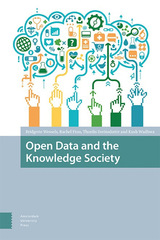
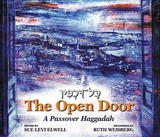
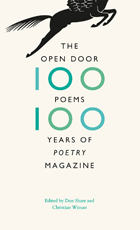
When Harriet Monroe founded Poetry magazine in Chicago in 1912, she began with an image: the Open Door. “May the great poet we are looking for never find it shut, or half-shut, against his ample genius!” For a century, the most important and enduring poets have walked through that door—William Carlos Williams and Wallace Stevens in its first years, Rae Armantrout and Kay Ryan in 2011. And at the same time, Poetry continues to discover the new voices who will be read a century from now.
Poetry’s archives are incomparable, and to celebrate the magazine’s centennial, editors Don Share and Christian Wiman combed them to create a new kind of anthology, energized by the self-imposed limitation to one hundred poems. Rather than attempting to be exhaustive or definitive—or even to offer the most familiar works—they have assembled a collection of poems that, in their juxtaposition, echo across a century of poetry. Adrienne Rich appears alongside Charles Bukowski; poems by Isaac Rosenberg and Randall Jarrell on the two world wars flank a devastating Vietnam War poem by the lesser-known George Starbuck; August Kleinzahler’s “The Hereafter” precedes “Prufrock,” casting Eliot’s masterpiece in a new light. Short extracts from Poetry’s letters and criticism punctuate the verse selections, hinting at themes and threads and serving as guides, interlocutors, or dissenting voices.
The resulting volume is an anthology like no other, a celebration of idiosyncrasy and invention, a vital monument to an institution that refuses to be static, and, most of all, a book that lovers of poetry will devour, debate, and keep close at hand.


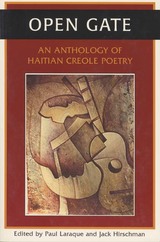
The editors focus on contemporary Creole poetry that reflects the struggle for human rights in Haiti. The book is divided into three sections: Pioneers of Modern Haitian Creole poetry, beginning with the founder of modern Haitian Creole literature, Felix Morisseu-Leroy (19131998); the flowering of Haitian poetry as represented by the literary movement, "Society of Butterflies," some of whose members were jailed or exiled by the bloody Duvalier dictatorship; and the New Generation featuring primarily those poets in the Diaspora whose work has been published in the last 15 years.

Kroll cultivates a bodily investigation of noncombative argument, offering direct pedagogical strategies anchored in three modalities of learning—conceptual-procedural, kinesthetic, and contemplative—and projects, activities, assignments, informal responses, and final papers for students. Kinesthetic exercises derived from martial arts and contemplative meditation and mindfulness practices are key to the approach, with Kroll specifically using movement as a physical analogy for tactics of arguing.
Collaboration, mediation, and empathy are important yet overlooked values in communicative exchange. This practical, engaging, and accessible guide for teachers contains clear examples and compelling discussions of pedagogical strategies that teach students not only how to write persuasively but also how to deal with personal conflict in their daily lives.
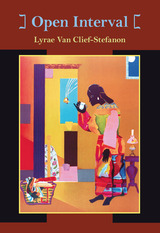
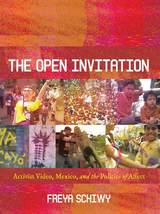



The contributors argue that sociological heritage which grew up under the banner of scientific Marxism has had a detrimental effect on the movement of socialist thinking. The 'emancipation of Marx' implies both freeing Marx from the understanding of the 20th century and the freeing of the human spirit from the control of capital.
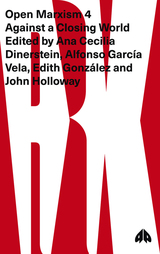
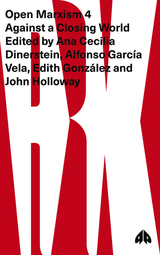
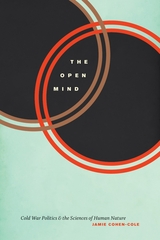
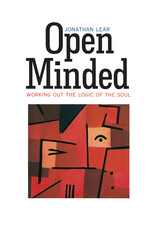
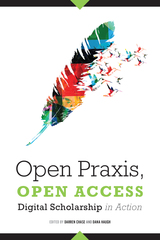
Many in the world of scholarship share the conviction that open access will be the engine of transformation leading to more culture, more research, more discovery, and more solutions to small and big problems. This collection brings together librarians, scholars, practitioners, policymakers, and thinkers to take measure of the open access movement. The editors meld critical essays, research, and case studies to offer an authoritative exploration of
- the concept of openness in scholarship, with an overview of how it is evolving in the US, Canada, Europe, and Asia;
- open access publishing, including funding models and the future of library science journals;
- the state of institutional repositories;
- Open Educational Resources (OER) at universities and a consortium, in subject areas ranging from literary studies to textbooks; and
- open science, open data, and a pilot data catalog for raising the visibility of protected data.
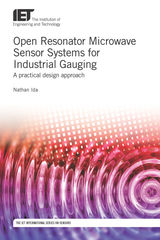

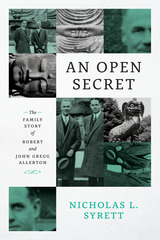
An Open Secret tells the striking story of these two iconoclasts, locating them among their queer contemporaries and exploring why becoming father and son made a surprising kind of sense for a twentieth-century couple who had every monetary advantage but one glaring problem: they wanted to be together publicly in a society that did not tolerate their love. Deftly exploring the nature of their design, domestic, and philanthropic projects, Nicholas L. Syrett illuminates how viewing the Allertons as both a same-sex couple and an adopted family is crucial to understanding their relationship’s profound queerness. By digging deep into the lives of two men who operated largely as ciphers in their own time, he opens up provocative new lanes to consider the diversity of kinship ties in modern US history.
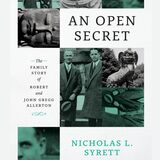
This is an auto-narrated audiobook edition of this book.
In 1922 Robert Allerton—described by the Chicago Tribune as the “richest bachelor in Chicago”—met a twenty-two-year-old University of Illinois architecture student named John Gregg, who was twenty-six years his junior. Virtually inseparable from then on, they began publicly referring to one another as father and son within a couple years of meeting. In 1960, after nearly four decades together, and with Robert Allerton nearing ninety, they embarked on a daringly nonconformist move: Allerton legally adopted the sixty-year-old Gregg as his son, the first such adoption of an adult in Illinois history.
An Open Secret tells the striking story of these two iconoclasts, locating them among their queer contemporaries and exploring why becoming father and son made a surprising kind of sense for a twentieth-century couple who had every monetary advantage but one glaring problem: they wanted to be together publicly in a society that did not tolerate their love. Deftly exploring the nature of their design, domestic, and philanthropic projects, Nicholas L. Syrett illuminates how viewing the Allertons as both a same-sex couple and an adopted family is crucial to understanding their relationship’s profound queerness. By digging deep into the lives of two men who operated largely as ciphers in their own time, he opens up provocative new lanes to consider the diversity of kinship ties in modern US history.
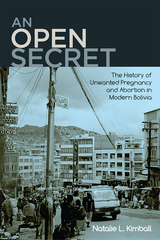

‘As a critic of Zionism and as an opponent of Jewish exclusivity, Israel Shahak is special. He possesses in-depth knowledge of Israeli society, Jewish culture and the history of his people. His humanitarian concerns and commitments are extensive; his work as a human rights campaigner ... is enormous ... Shahak provides insights [in Open Secrets] that are often far more penetrating than what has been written by others ... Little of the information and few of the insights in Open Secrets can be found in other books that focus on Israel and the Middle East ... Open Secrets is an excellent book for required reading in History, political science and/or international affairs courses in which there is consideration of Israel in the Middle East.’ The Washington Report on Middle East Affairs

• This handbook will prepare you to take the lead in executing your own publicity plan. It is designed to guide you, step-by-step, through the process of making a success of your book. It’s jam-packed with the essential tools, ideas, and resources you’ll need to achieve that goal, from an independent publisher who has provided a launching pad for authors like Ilya Kaminsky, Aimee Nezhukumatathil, Jennifer Michael Hecht, Maggie Smith, Matthew Zapruder, and 250 others.
• Thoroughly and joyfully embrace the notion of self-promotion, knowing that it’s the book—your book—you’re breathing life into. You wouldn’t have written and published your book if you didn’t believe in it, and in yourself, as a writer with important artistic talent to share. Your publisher believes in you. Your family and friends believe in you. Your current readers believe in you. And future readers will believe in you.
Jeffrey Levine, Publisher, Tupelo Press
You’ll learn the essentials for book marketing as an indie author in a digital age:
• Develop your author image and brand across social channels
• Create an engaging social media presence
• Grow your audience and meaningfully connect with them
• Build an attractive, searchable website—no coding skills needed
• Launch a publicity campaign that gets you reviews
• Ensure your book is on bookstore and library shelves
• Practice mindful literary citizenship
• Learn from Tupelo authors (who were in your shoes not too long ago!)
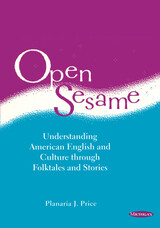
Included are such classic tales as "Cinderella," "The Three Pigs," "Johnny Appleseed," and "Rip Van Winkle," and excerpts from more recent stories such as Charlotte's Web and The Wizard of Oz.
The goals of Open Sesame are to teach reading skills, build vocabulary, stimulate discussion, and develop critical-thinking skills. The text may also be of interest in the disciplines of children's literature, folklore, and cross-cultural studies.
The text is accompanied by cassettes that "tell" the stories for learners who have not yet acquired all the vocabulary needed to read these original stories and folktales on their own.
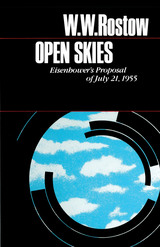
In 1955 the United States and the Soviet Union were matching steps in a race to develop missiles tipped with thermonuclear weapons. American officials were frustrated and alarmed by their inability to learn the scale and progress of the Soviet program, which directly threatened the security of the United States, and they were convinced that serious arms control measures required reliable means for mutual inspection. The result: President Dwight D. Eisenhower's dramatic Open Skies proposal, advanced—and rejected—at the Geneva summit of 1955.
Vetoed by Nikita Khrushchev, Eisenhower's proposal to allow mutual aerial inspection between the United States and the U.S.S.R. was accepted as policy only after satellite photography became feasible. But at the time of the 1955 summit, it was a stunning, if transient, psychological and political victory for the United States and its president.
W. W. Rostow was an active participant in this important episode in American history, and his is the first authoritative account of how Eisenhower's Open Skies proposal came to be. His insider's knowledge, combined with data from hitherto unexploited documentary sources, vividly brings to life the discussions and events that preceded the president's proposal.
Rostow explores the diplomatic forces that led to Eisenhower's reluctant acceptance of a summit with the Soviets. He tracks the origins of the Open Skies concept to an obscure meeting organized at Quantico Marine Corps Base by presidential adviser Nelson Rockefeller. He describes the tensions between Rockefeller and Secretary of State John Foster Dulles that complicated Eisenhower's task in mounting the initiative for Open Skies and explains the differences between Eisenhower himself and Rockefeller over postsummit policy that provoked the latter's resignation. He examines Soviet motives and objectives at Geneva. Finally, Rostow reflects on the meaning of this fascinating episode in American history, in particular its importance to later arms control negotiations.
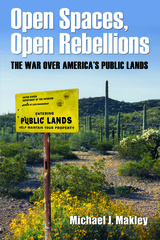
In Open Spaces, Open Rebellions, Michael J. Makley offers a succinct and compelling history of the federal government's management of public lands. As Makley reveals, beginning in the nineteenth century and continuing to the present day, debates over how best to balance the use of these lands by the general public, fee-paying ranchers, and resource developers have always been complex and contentious. Indeed, these debates have often been met with demands for privatization or state control, best exemplified by the Sagebrush Rebellion of the 1980s and the 2016 occupation of Oregon's Malheur National Wildlife Refuge.
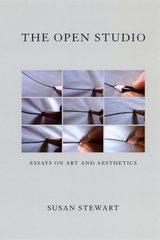
Gathering most of Stewart's writing on contemporary art—long and short pieces first published in small magazines, museum and gallery publications, and edited collections—The Open Studio illuminates work ranging from the installation art of Ann Hamilton to the sculptures and watercolors of Thomas Schütte, the prints and animations of William Kentridge to the films of Tacita Dean. Stewart's essays are often the record of studio conversations with living artists and curators, and of the afterlife of those experiences in the solitude of her own study. Considering a wide variety of art forms, Stewart finds pathbreaking ways to explore them. Whether she is following central traditions of painting, drawing, sculpture, film, photography, and printmaking or exploring the less well-known realms of portrait miniatures, collecting practices, doll-making, music boxes, and gardening, Stewart speaks to the creative process in general and to the relation between art and ethics.
The Open Studio will be read eagerly by scholars of art, poetry, and visual theory; by historians interested in the links between contemporary and classic literature and art; and by teachers, students, and practitioners of the visual arts.
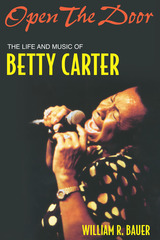
This book looks at Betty Carter's contribution to the music world and delves behind the scenes to show Carter's growth as a businesswoman who took charge of her career.
Drawing upon revealing interviews with Carter, the author shows how ever-changing shifts in the music industry affected the singer's life and influenced her music. Bauer shows through his analysis of her musical examples how Carter absorbed various musical influences, from Sarah Vaughan and Billie Holiday to Miles Davis, and made them her own. From her apprenticeship with Gladys Hampton, Carter grew to become a shrewd dealer who learned to do her own contracting, A&R, and marketing and distribution. By chronicling one of jazz's great singers and composers, the book sheds light on how early jazz musicians got their work to the public and how this process has changed during the past fifty years.
William R. Bauer is Assistant Professor of Music at Rutgers University-Newark, where he directs the Rutgers Newark Student Jazz Ensemble, MOSAIC, and teaches in the Jazz History and Research program. He has written several articles about jazz vocal performance and scat singing, as well as various aspects of music education. His compositions have been performed throughout the United States and in Europe and include works for the theater and dance.
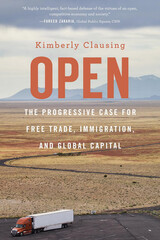
A Financial Times Best Economics Book of the Year
A Foreign Affairs Best Book of the Year
A Fareed Zakaria GPS Book of the Week
“A highly intelligent, fact-based defense of the virtues of an open, competitive economy and society.”
—Fareed Zakaria
“A vitally important corrective to the current populist moment…Open points the way to a kinder, gentler version of globalization that ensures that the gains are shared by all.”
—Justin Wolfers
“Clausing’s important book lays out the economics of globalization and, more important, shows how globalization can be made to work for the vast majority of Americans. I hope the next President of the United States takes its lessons on board.”
—Lawrence H. Summers, former Secretary of the Treasury
“Makes a strong case in favor of foreign trade in goods and services, the cross-border movement of capital, and immigration. This valuable book amounts to a primer on globalization.”
—Richard N. Cooper, Foreign Affairs
Critics on the Left have long attacked open markets and free trade agreements for exploiting the poor and undermining labor, while those on the Right complain that they unjustly penalize workers back home. Kimberly Clausing takes on old and new skeptics in her compelling case that open economies are actually a force for good. Turning to the data to separate substance from spin, she shows how international trade makes countries richer, raises living standards, benefits consumers, and brings nations together. At a time when borders are closing and the safety of global supply chains is being thrown into question, she outlines a clear agenda to manage globalization more effectively, presenting strategies to equip workers for a modern economy and establish a better partnership between labor and the business community.
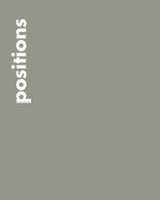
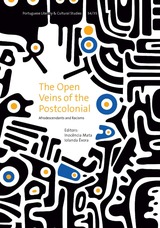
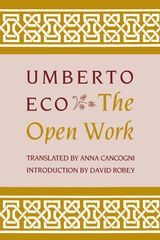
More than twenty years after its original appearance in Italian, The Open Work remains significant for its powerful concept of "openness"--the artist's decision to leave arrangements of some constituents of a work to the public or to chance--and for its striking anticipation of two major themes of contemporary literary theory: the element of multiplicity and plurality in art, and the insistence on literary response as an interactive process between reader and text. The questions Umberto Eco raises, and the answers he suggests, are intertwined in the continuing debate on literature, art, and culture in general.
This entirely new edition, edited for the English-language audience with the approval of Eco himself, includes an authoritative introduction by David Robey that explores Eco's thought at the period of The Open Work, prior to his absorption in semiotics. The book now contains key essays on Eco's mentor Luigi Pareyson, on television and mass culture, and on the politics of art. Harvard University Press will publish separately and simultaneously the extended study of James Joyce that was originally part of The Open Work, entitled The Aesthetics of Chaosmos: The Middle Ages of James Joyce. The Open Work explores a set of issues in aesthetics that remain central to critical theory, and does so in a characteristically vivid style. Eco's convincing manner of presenting ideas and his instinct for the lively example are threaded compellingly throughout. This book is at once a major treatise in modern aesthetics and an excellent introduction to Eco's thought.
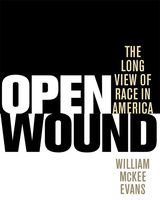
In this boldly interpretive narrative, William McKee Evans tells the story of America's paradox of democracy entangled with a centuries-old system of racial oppression. This racial system of interacting practices and ideas first justified black slavery, then, after the Civil War, other forms of coerced black labor and, today, black poverty and unemployment.
At three historical moments, a crisis in the larger society opened political space for idealists to challenge the racial system: during the American Revolution, then during the "irrepressible conflict" ending in the Civil War, and, finally, during the Cold War and the colonial liberation movements. Each challenge resulted in an historic advance. But none swept clean. Many African Americans remain segregated in jobless ghettoes with dilapidated schools and dismal prospects in an increasingly polarized class society.
Evans sees a new crisis looming in a convergence of environmental disaster, endless wars, and economic collapse, which may again open space for a challenge to the racial system. African Americans, with their memory of their centuries-old struggle against oppressors, appear uniquely placed to play a central role.
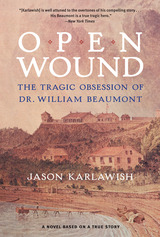
A shotgun misfires inside the American Fur Company store in Northern Michigan, and Alexis St. Martin's death appears imminent. It's 1822, and, as the leaders of Mackinac Island examine St. Martin's shot-riddled torso, they decide not to incur a single expense on behalf of the indentured fur trapper. They even go so far as to dismiss the attention of U.S. Army Assistant Surgeon William Beaumont, the frontier fort's only doctor.
Beaumont ignores the orders and saves the young man's life. What neither the doctor nor his patient understands—yet—is that even as Beaumont's care of St. Martin continues for decades, the motives and merits of his attention are far from clear. In fact, for what he does to his patient, Beaumont will eventually stand trial and be judged.
Rooted deeply in historic fact, Open Wound artfully fictionalizes the complex, lifelong relationship between Beaumont and his illiterate French Canadian patient. The young trapper's injury never completely heals, leaving a hole into his stomach that the curious doctor uses as a window to understand the mysteries of digestion. Eager to rise up from his humble origins and self-conscious that his medical training occurred as an apprentice to a rural physician rather than at an elite university, Beaumont seizes the opportunity to experiment upon his patient's stomach in order to write a book that he hopes will establish his legitimacy and secure his prosperity. As Jason Karlawish portrays him, Beaumont, always growing hungrier for more wealth and more prestige, personifies the best and worst aspects of American ambition and power.
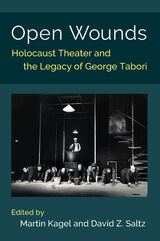
Until Tabori, most dramas about the Holocaust were either rooted in American domestic realism, striving to create a strong empathetic connection between the audience and Holocaust victims, or featured an unembellished documentary style. Tabori staked out a third position, beyond realism and documentation. The volume brings together the voices of international scholars to provide a comprehensive introduction to Tabori’s theater as well as in-depth analyses of his work, discussing all of his major plays. Individual essays address Tabori’s postdramatic theater in relation to sacrificial ritual, performance studies, and post-humanist approaches to the contemporary stage, as well as performance aspects of his productions, questions of ethics and aesthetics raised by his theater, and his plays’ relation to Holocaust representation in popular culture.
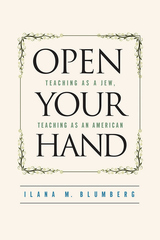

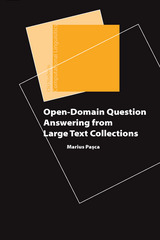
Better than an index, and much better than a keyword search, are the high-precision computerized question-answering systems explored in this book. Marius Pasca presents novel and robust methods for capturing the semantics of natural language questions and for finding the most relevant portions of texts. This research has led to a fully implemented and rigorously evaluated architecture that has produced experimental results showing great promise for the future of internet search technology.
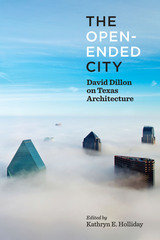
Texas Historical Commission Award of Excellence in Media Achievement, Texas Historical Commission
In 1980, David Dillon launched his career as an architectural critic with a provocative article that asked “Why Is Dallas Architecture So Bad?” Over the next quarter century, he offered readers of the Dallas Morning News a vision of how good architecture and planning could improve quality of life, combatting the negative effects of urban sprawl, civic fragmentation, and rapacious real estate development typical in Texas cities. The Open-Ended City gathers more than sixty key articles that helped establish Dillon’s national reputation as a witty and acerbic critic, showing readers why architecture matters and how it can enrich their lives.Kathryn E. Holliday discusses how Dillon connected culture, commerce, history, and public life in ways that few columnists and reporters ever get the opportunity to do. The articles she includes touch on major themes that animated Dillon’s writing: downtown redevelopment, suburban sprawl, arts and culture, historic preservation, and the necessity of aesthetic quality in architecture as a baseline for thriving communities. While the specifics of these articles will resonate with those who care about Dallas, Fort Worth, and other Texas cities, they are also deeply relevant to all architects, urbanists, and citizens who engage in the public life and planning of cities. As a collection, The Open-Ended City persuasively demonstrates how a discerning critic helped to shape a landmark city by shaping the conversation about its architecture.
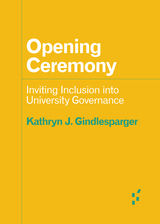
Explores how university governance is restricted by ceremony and what it must do to survive
University shared governance is a microcosm of regulation and thrives particularly on ceremony to communicate its relevance. While many investigations of university governance examine representation, Opening Ceremony offers that, instead, stakeholders’ belief in institutional values can invite revision of stagnant governance practices. Governance tells us what the rules are, but they also tell us how to feel: opening up the ceremonial communication of this system invites new participants to rewrite how universities respond to felt needs.
Kathryn J. Gindlesparger considers how to break the seal of ceremony to invite voices not traditionally heard in governance and, in doing so, protect the ideals of the institution and rebuild trust in higher education.
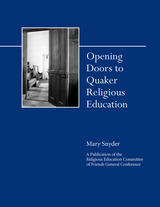
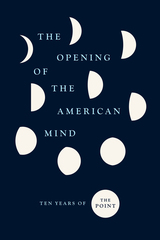
Featuring award-winning and highly acclaimed essays from The Point’s first ten years, The Opening of the American Mind traces the path of American intellect from the magazine’s inception in 2009, when Barack Obama was ascending the steps of the White House, to the brink of the 2020 election. The essays, chosen both for the way they capture their time and transcend it, are assembled into five sections that address cycles of cultural frustrations, social movements, and the aftermath of the 2016 election, and provide lively, forward-looking considerations of how we might expand our imaginations into the future. Spanning the era of Obama and Trump, Occupy Wall Street and Black Lives Matter, #MeToo and renewed attention to reparations, this anthology offers critical reflections on some of the decade’s most influential events and stands as a testament to the significance of open exchange. The intellectual dialogue provided by The Point has never been more urgently needed, and this collection will bring the magazine’s vital work to an even broader readership.
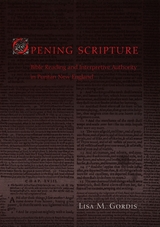
What role did the Bible really play in Puritan New England? Many have treated it as a blunt instrument used to cudgel dissenters into submission, but Lisa M. Gordis reveals instead that Puritan readings of the Bible showed great complexity and literary sophistication—so much complexity, in fact, that controversies over biblical interpretation threatened to tear Puritan society apart.
Drawing on Puritan preaching manuals and sermons as well as the texts of early religious controversies, Gordis argues that Puritan ministers did not expect to impose their views on their congregations. Instead they believed that interpretive consensus would emerge from the process of reading the Bible, with the Holy Spirit assisting readers to understand God's will. Treating the conflict over Roger Williams, the Antinomian Controversy, and the reluctant compromises of the Halfway Covenant as symptoms of a crisis that was as much literary as it was social or spiritual, Opening Scripture explores the profound consequences of Puritan negotiations over biblical interpretation for New England's literature and history.
READERS
Browse our collection.
PUBLISHERS
See BiblioVault's publisher services.
STUDENT SERVICES
Files for college accessibility offices.
UChicago Accessibility Resources
home | accessibility | search | about | contact us
BiblioVault ® 2001 - 2024
The University of Chicago Press









